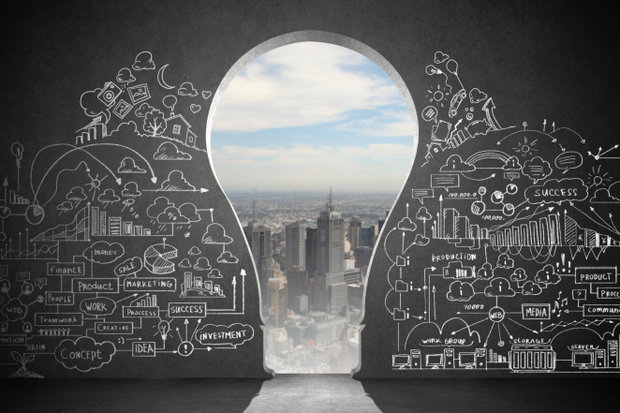Things that wont change Fundamentally

Marketers get very excited by change, which is often presented as pervasive, fast and difficult to predict. Machine learning (artificial intelligence) is the current hot topic: will it produce popular unrest and alarming challenges to the capabilities of states, or gradual change and something more benign? There is no consensus.
Professor Stephen Hawking has said: “Success in creating AI would be the biggest event in human history.Unfortunately, it might also be the last.” And there are the ‘black swans’ or ‘unknown unknowns’, to revisit Donald Rumsfeld’s memorable phrase. How can you plan for those?
All of which makes fools of planners and undermines confidence in long-term planning projects. Why make a long-term plan if the ground is constantly shifting beneath your feet?
The solid ground here is human nature – technologies may be new but to succeed they typically satisfy needs that are innate and basic. The brains with which we navigate the modern world are primitive and our decision-making is driven more by emotion than reason. AI’s progress may slow if it violates the human need to feel in control.
If we stand on this ground, we can peer ahead and make plans with more confidence. In the spirit of kicking off a debate among
Marketing Society members, here are my ten predictions of things that are not going to fundamentally change
1) The perception of popularity will still sell
Humans outsource risk to the crowd: if something is perceived to be widely used then it is probably a safe choice. Consumers want (most of the time) to make a ‘good enough’ rather than a ‘perfect for me’ choice and so they use people like themselves as a guide. The demise of mass communication has been much predicted for its wastefulness, but it will remain powerful because it is also a form of public affirmation that a brand is popular and widely used – and that will remain highly persuasive.
2) Brands that make it easy to buy will still win
Humans don’t like to think too much or try too hard or too long when buying stuff. Ease increases response, which has always been true of direct marketing. Making things easy is also a good way to engender trust. As Daniel Kahnemann explains, ease takes less effort and it “feels familiar, feels true and feels good”. Ease and simplicity of design will continue to drive out complexity. Much of Amazon’s restless innovation – Prime, drone delivery – serves our lazy, spontaneous selves. I expect that Google on your smartphone will still look much as it does in ten years’ time and most of us will be too embarrassed to be seen in public barking commands at our mobiles.
3) Brands will continue to invest in instantly recognisable icons
Try Googling ‘home insurance’ and your memory will buzz with images of meerkats, opera singers with twirly moustaches and admirals. As John Berger put it in Ways of Seeing: “Seeing comes before words. The child looks and recognises before it can speak.”
Brands will continue to create a large cast of jolly characters, particularly those targeting children. Brands engaged in partnership marketing – most charities, for example – will win the battle for attention with red noses and teddy bears with eyepatches. They are the ones you recognise first and with which you feel familiar. Brands will still have to communicate quickly and in all shapes and sizes – big on a poster and tiny on a smartphone.
4) Branding will still be colour-coded
Coca-Cola will still be that shade of red. Cadbury will still be purple because the pigment was once so expensive that only royalty could afford it, and so the colour will forever be associated with luxury. Facebook will still be the blue one and easyJet will be orange.
5) Only a few elite brands will be really good at personalisation
You already know who they are – the likes of Amazon, Google, Facebook and your mobile phone network. It takes a combination of huge volumes of recent data, including location data, and heavy investment in machine learning to be consistently relevant.
But consumers will experience the gap between the hype and reality of personalisation: frequently dumb (‘I went to Berlin a month ago and I no longer need travel insurance’) and sometimes just plain insensitive (‘I may have hit a milestone birthday but I really, really don’t want a funeral plan’). Consequently, well-delivered personal service from human beings will not go out of fashion (even if they are looking at a screen with information about you on it at the time).
6) People will want flexible and immediate services
In ten years’ time, we will all be tooled up with small supercomputers/smartphones – connected fast to the web.
Cheaper devices, from the likes of Huawei, will have converted the laggards. Consumers will be living lives of semi-planned spontaneity and will expect services to be as immediate and flexible as possible, such as Booking.com (you can make a booking right now, but you don’t have to pay until you settle the bill) or Netflix (you can access it from screen, cancel it without penalty and give access codes to five friends) or Lyft (which promises you ‘a ride whenever you need one’). Immediate and flexible service is the norm for today’s digital natives, and brands will have to evolve their services to reflect their expectations.
7) Brands will do well by doing good
At the 2016 Cannes Lions, social purpose campaigns covered a wide range of issues – empowerment of women in the developing world, the refugee crisis, protection of women from violence, diversity, gay rights, obesity, food safety and sustainability. Brands have permanently stepped into the space vacated by the declining power of and trust in the state and politicians.
Brand owners have also recruited a whole generation of ‘millennial managers’ on the promise that they are going to both make profits and do good in their work. Companies will be held to account, with any falling away being readily exposed (often by disenchanted employees using social media for whistle-blowing).
8) The multisensual pleasures of print
Humans spend a lot of time staring at screens for work and pleasure. But all trends have counter trends, and print has fought back. My local newsagent’s shelves groan with glossy magazines on a dizzying range of interests. When Google wants to promote itself as super smart, what does it do? It publishes hardback books. And, personally, I am delighted that e-books have failed to shutter my local bookshop, which in short order will doubtless be a coffee shop too – in order to survive Amazon’s aggressive price-cutting.
9) The high street will not be killed by e-commerce
Humans are social animals. We like to see and be seen. We like to touch and smell the fruit and veg – as evidenced by the fact that there are now more farmers’ markets than Sainsbury’s stores. Marketplaces are social spaces. People who live alone – a demographic that will inevitably rise over the next decade – will want to get out of the house and see faces, and not just receive a drone delivery from Amazon.
10) Changes in form but not substance on your smartphone
Have a look at the icons on your smartphone. This surely will continue to be one of the most Darwinian of marketplaces. Restless innovation – regular upgrades with new features – will aim to keep users in the habit of regular use. It is a life or death issue for the heavy hitters, as most of them are in the business of selling attention: they fear losing it and becoming the next Myspace, blindsided by challengers with better ideas about how to hook in and keep users. My guess, though, is that the line-up of big players will be similar in ten years because (a) they are paranoid, (b) rich and (c) heavily invested in data and AI.
The needs they will satisfy can mostly be written down now – finding information quickly, buying stuff, booking things, finding places to go nearby, being nosey, showing off, communicating with friends, hooking up with potential partners, playing games and generally being distracted in moments of boredom. And so on.
Disruption vs. evolution
‘Moonshots’, ‘10× thinking’ and tech-driven disruption are the stuff inspiring TED talks that fuel speculation about a radically different future that is arriving fast. Yet the innovations that will affect more of us are likely to be incremental in nature. I don’t expect self-driving cars any time soon. More likely are electric cars and bikes, due to improvements in batteries, thus evolving and combining existing and widely used technologies.
Designs will mutate – and very fast in the super-competitive world of smartphone apps – but human needs are (mostly) immutable. That is a solid starting point for planning.
These are ideas that I would like to put on the table for your next long-term planning session. What are yours?
-
AUTHOR






 Posted On July 8 2025
Posted On July 8 2025